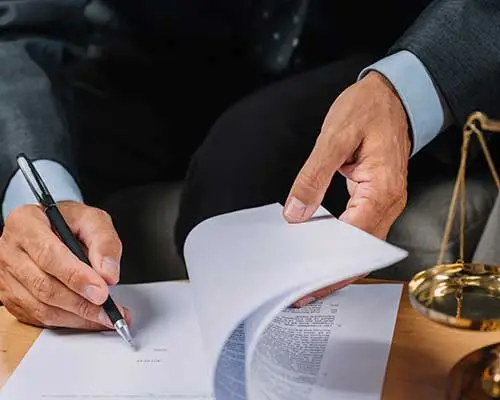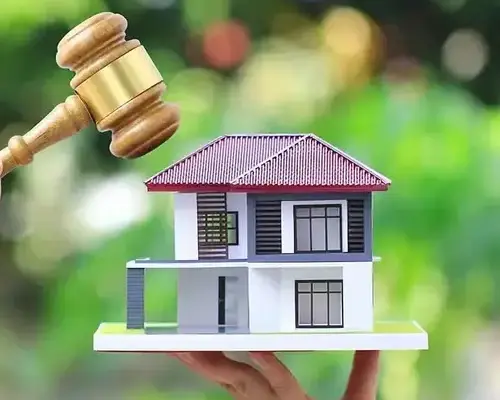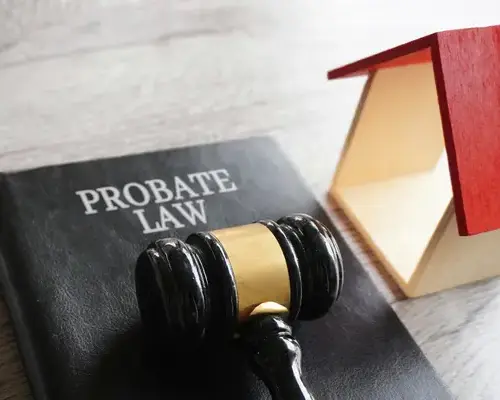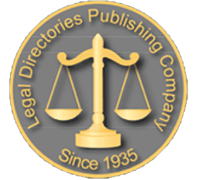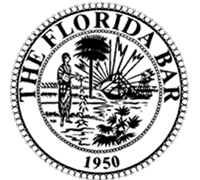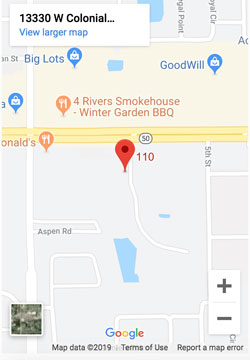When to Hire Foreclosure Lawyers: A Simple Guide
Many people believe you should only call a lawyer after you’ve received a court summons, but that’s a common and costly mistake. The best time to connect with a legal professional is the moment you anticipate trouble with your mortgage payments. Acting quickly gives you a significant advantage. Proactive foreclosure lawyers can intervene early to explore options like loan modifications or forbearance agreements before the situation escalates into a formal lawsuit. By getting ahead of the problem, you provide your attorney with more time and leverage to negotiate a favorable outcome, potentially saving your home and your credit without a lengthy court battle.
Key Takeaways
- A foreclosure lawyer is your advocate in and out of the courtroom: They handle complex negotiations with your lender, meticulously review all paperwork for errors, and develop a legal strategy tailored to your specific circumstances.
- Seeking legal help early gives you the most leverage: The best time to contact an attorney is when you first receive a warning notice, as this provides the most time to explore all possible solutions, from loan modifications to a full legal defense.
- A strong defense is a team effort: You can significantly help your case by choosing a lawyer who specializes in Florida real estate law, providing all requested documents promptly, and maintaining clear, honest communication throughout the process.
What Does a Foreclosure Lawyer Do?
When you receive a foreclosure notice, it’s easy to feel overwhelmed and unsure of what to do next. A foreclosure lawyer is a legal professional who specializes in helping homeowners navigate this exact situation. Their primary goal is to defend your rights and find the best possible solution for you, whether that means keeping your home or moving on with the least financial impact. Think of them as your dedicated advocate, equipped with the legal knowledge and experience to challenge the lender’s actions and guide you through a complex legal maze. They act as your negotiator, your strategist, and your guide, translating complicated legal jargon into plain English so you always understand your options.
A foreclosure attorney does much more than just represent you in court. They handle the tough conversations with your lender to explore alternatives like loan modifications or repayment plans. They also dive deep into the paperwork, reviewing every document for errors that could be used in your defense and ensuring all your responses are filed correctly and on time. From building a legal strategy tailored to your unique circumstances to standing up for you in front of a judge, their support is comprehensive. Our real estate litigation team is equipped to handle every step of the process, providing clarity and a path forward when things feel uncertain. They manage the deadlines, the communication, and the legal filings, allowing you to focus on your family and your finances.
Represent You in Court
Facing a lender in court can be incredibly intimidating. A foreclosure lawyer acts as your advocate, handling all court appearances and legal arguments on your behalf. They know exactly what to look for and can point out mistakes made by the bank or lender in court to stop the foreclosure. This could involve procedural errors, incorrect documentation, or violations of your rights as a homeowner. Having a professional who understands Florida’s complex real estate laws manage the litigation process not only strengthens your defense but also relieves you of the immense stress of facing the legal system alone. They build your case and present it clearly, giving you the best possible chance at a favorable outcome.
Negotiate with Lenders
Often, the best way to resolve a foreclosure isn’t in a courtroom but at a negotiating table. A foreclosure attorney is a skilled negotiator who can speak for you in meetings with the bank to try and find a solution. Lenders are often more willing to discuss alternatives with a legal professional than with a homeowner directly. Your lawyer can explore options like a repayment plan, forbearance, or a short sale, presenting your case in a way that makes financial sense to the lender. They handle the back-and-forth communication, cutting through the red tape and working toward an agreement that allows you to either keep your home or exit the situation with minimal damage to your finances.
Review and Prepare Documents
The foreclosure process is driven by paperwork, and a single mistake can have serious consequences. Hiring a lawyer to help you with the required documentation and legal analysis is typically necessary if you want to fight a foreclosure. They will meticulously review every document from your lender—including the initial notice, the summons, and the complaint—to check for errors or legal inconsistencies. Your attorney will also manage all of your responses and filings, ensuring they are completed accurately and submitted on time. This attention to detail is critical, as a well-prepared legal document can be the key to challenging the lender’s case and protecting your home.
Help with Loan Modifications
If your goal is to stay in your home but your current mortgage payments are unmanageable, a loan modification might be the answer. A foreclosure lawyer can help you get your loan terms changed so your payments are more affordable. They assist in preparing and submitting a strong loan modification application, which is often a complicated and frustrating process. Your attorney knows what lenders look for and can help you present your financial hardship and supporting documents in the most compelling way. This significantly increases your chances of getting approved for new terms, such as a lower interest rate or an extended loan period. If you need help exploring this option, our attorneys are ready to assist.
When Should You Hire a Foreclosure Lawyer?
Figuring out the right time to call a lawyer when you’re facing foreclosure can feel overwhelming, but certain moments are clear signals to get professional help. Acting quickly is one of the most effective things you can do to protect your home and your rights. If you find yourself in any of the situations below, it’s a good idea to connect with an experienced foreclosure attorney who can guide you through the process. Waiting can limit your options, so think of it as bringing in an expert to help you manage a complex challenge as early as possible.
You’ve Received a Warning Notice
The moment you receive an official warning notice from your lender—like a Notice of Default or a Lis Pendens—is the time to act. This isn’t just a casual reminder; it’s the start of a formal legal process. Getting a lawyer involved as soon as you receive this notice gives you the best chance of stopping the foreclosure. An attorney can immediately review your case, explain your rights, and start building a defense strategy. The earlier you seek legal advice, the more time your lawyer has to negotiate with the lender or prepare for court, putting you in a much stronger position to keep your home.
Your Lender May Have Violated the Law
Lenders are required to follow strict state and federal laws during the foreclosure process. If they make a mistake, it could be grounds to challenge the foreclosure. A lawyer can identify violations of these laws and use them to defend your case. For example, lenders must adhere to specific timelines and notification requirements. The Consumer Financial Protection Bureau outlines many of these federal mortgage servicing rules. An experienced attorney knows exactly what to look for and can determine if your lender has engaged in unfair practices, giving you powerful leverage in negotiations or in court.
You Have a Complex Financial Situation
If your financial life isn’t straightforward, trying to manage a foreclosure on your own can be incredibly difficult. An attorney can help you understand all the available choices, which might include options you haven’t considered. They can explain complex solutions like loan modification, forbearance, or even bankruptcy and help you decide which path makes the most sense for your specific circumstances. Our team of experienced attorneys can assess your overall financial picture and provide clear, personalized advice to help you find a sustainable solution and move forward with confidence.
Your Loan Servicer Has Changed
It’s common for mortgages to be sold from one company to another. If your loan servicer changed, especially after you fell behind on payments, critical information can get lost in the shuffle. The new company might not have the correct records of your payment history or the accurate amount you owe. A foreclosure lawyer can investigate this transfer to ensure the new servicer has followed all the rules and that their claims about your debt are accurate. This audit can uncover errors that may help your case significantly.
You’ve Found Errors in Your Paperwork
Carefully review all the documents you receive from your lender. If you spot any mistakes—whether it’s an incorrect loan balance, misapplied payments, or even just a wrong name or address—it could be important. While some errors are minor, others can be significant enough to challenge the foreclosure itself. A lawyer has a trained eye for these details and can determine if an error is legally significant. If you suspect something is wrong with your paperwork, it’s best to have a professional review it. Don’t hesitate to contact our firm to ensure your rights are protected.
How a Foreclosure Lawyer Can Help You
Facing foreclosure can feel like you’re trying to find your way through a maze without a map. The legal system is complex, and the stakes are incredibly high. This is where a foreclosure lawyer steps in. They act as your guide and advocate, bringing clarity and expertise to a stressful situation. An experienced attorney does more than just file paperwork; they build a strategy tailored to your circumstances. From scrutinizing your lender’s actions to negotiating on your behalf and representing you in court, their goal is to secure the best possible outcome for you and your family. Having a professional in your corner can make a significant difference, turning a seemingly hopeless situation into one with manageable options.
Protect Your Legal Rights
Foreclosure is a formal legal process, and your lender must follow Florida’s laws to the letter. A foreclosure lawyer’s first job is to ensure your rights are protected every step of the way. They will carefully review your case to confirm your lender has acted properly, from providing adequate notice to filing the correct documents. If any procedural errors or violations have occurred, your attorney can use them to build a strong defense. This level of scrutiny is crucial, as a mistake on the lender’s part could potentially lead to the dismissal of the foreclosure action, giving you the leverage you need to save your home.
Gain an Expert Negotiator
Often, the best way to resolve a foreclosure isn’t in a courtroom but at a negotiating table. A foreclosure defense attorney is a skilled negotiator who can communicate with your lender to find a solution that avoids foreclosure. Lenders are often more receptive to working with a lawyer who understands the legal landscape and can present viable alternatives. Your attorney can help you pursue options like a loan modification, a forbearance agreement, or a short sale. Having one of our firm’s experienced attorneys handle these discussions removes the emotion from the process and focuses on reaching a practical, sustainable agreement.
Access Key Legal Resources
Fighting a foreclosure requires a deep understanding of legal procedures and documentation. An attorney has the training and resources to handle the complex paperwork involved, from responding to the initial complaint to filing motions on your behalf. They know what evidence to gather, which legal arguments to make, and how to present your case effectively. This includes analyzing your loan documents for any inaccuracies or predatory lending practices. Hiring a lawyer gives you access to their legal knowledge and resources, which is essential if you want to effectively challenge the foreclosure and protect your property.
Avoid Costly Mistakes
When you’re trying to manage a foreclosure on your own, it’s easy to make mistakes that can jeopardize your case. Missing a court deadline, misinterpreting a legal notice, or unintentionally waiving one of your rights can have severe consequences. A foreclosure lawyer helps you avoid these pitfalls. For example, if your foreclosure notice was missing required information, your attorney can argue that the action isn’t valid. They manage the timelines, paperwork, and communication, ensuring every action taken is strategic and serves your best interests. This guidance is invaluable for anyone facing foreclosure, especially business owners dealing with commercial real estate.
Understand All Your Options
One of the most overwhelming parts of foreclosure is not knowing what to do next. A good attorney will clearly explain all of your options, along with the potential benefits and drawbacks of each. They can help you understand complex choices like loss mitigation, loan modification, or even bankruptcy, and advise you on the best path for your unique financial situation. This isn’t just about fighting in court; it’s about finding the most effective long-term solution. An attorney provides an objective perspective, empowering you to make informed decisions instead of emotional ones. If you’re ready to explore your options, we encourage you to contact our team for a consultation.
Common Myths About Foreclosure Lawyers
When you’re facing foreclosure, it’s easy to get overwhelmed by stress and misinformation. Unfortunately, common myths about hiring a lawyer can stop homeowners from getting the help they need when they need it most. Believing these misconceptions can put your home at greater risk. Let’s clear up a few of the most persistent myths so you can make an informed decision about protecting your property and your future. Understanding the truth about foreclosure defense is the first step toward finding a viable path forward.
“I can’t afford a lawyer.”
The fear of legal fees is completely understandable, especially when you’re already struggling financially. However, viewing a foreclosure lawyer as just another expense is a mistake. Think of it as an investment in saving your most valuable asset. An experienced attorney can often negotiate a loan modification, challenge the foreclosure in court, or find errors that could get the case dismissed. The cost of losing your home and damaging your credit is almost always higher than the cost of legal representation. Many firms also offer initial consultations to help you understand the potential costs and strategies before you commit.
“It’s too early (or too late) to hire one.”
Timing is critical in a foreclosure case, and there’s a common misconception about the right moment to act. Many people wait until they receive a formal court summons, but the ideal time to seek legal advice is as soon as you anticipate having trouble making payments. Lenders typically don’t start foreclosure until you’ve missed a few payments, so getting a lawyer involved early gives them more time and more options to negotiate on your behalf. On the other hand, it’s rarely “too late.” Even if a foreclosure lawsuit has been filed, a skilled attorney can still step in to defend your rights and explore solutions.
“Any lawyer can handle a foreclosure.”
This is one of the most dangerous myths. Foreclosure is a highly specialized area of real estate law with its own set of complex rules, procedures, and deadlines. You wouldn’t ask a family doctor to perform heart surgery, and you shouldn’t ask a general practice attorney to handle your foreclosure defense. An attorney who specializes in this field understands the specific laws in Florida, knows the common tactics lenders use, and has the experience to build a strong defense tailored to your situation. Hiring a lawyer without this specific background can put you at a serious disadvantage.
“I can defend myself in court.”
While you technically have the right to represent yourself, it’s an incredibly risky path to take. The foreclosure process is complicated, and the lender will have a team of experienced lawyers working for them. They know the legal system inside and out, and a small procedural mistake on your part could cost you your case. A foreclosure defense lawyer levels the playing field. They can identify defenses you wouldn’t know exist, handle all the complex paperwork, and ensure your rights are protected every step of the way. Trying to go it alone often leads to a much worse outcome.
How to Choose the Right Foreclosure Lawyer
Finding the right legal partner when you’re facing foreclosure can feel like a monumental task, but it’s one of the most important steps you can take. The right attorney doesn’t just offer legal advice; they provide a clear path forward and act as your dedicated advocate. Think of this process as building your team. You want someone with the right skills, a deep understanding of the game, and a communication style that keeps you informed and confident. Let’s walk through the key things to look for to ensure you find the best fit for your situation.
Look for Relevant Experience
When you’re searching for a lawyer, you’ll want someone who specializes in foreclosure defense, not just a general practitioner. Foreclosure law is a specific field with its own set of rules and procedures. An attorney with a proven track record in this area will know the common tactics lenders use and how to build the strongest defense for you. Ask people you know for recommendations, especially if they’ve been through a similar situation. When you review a law firm’s website, check to see if they highlight real estate law and litigation as a core part of their practice. Don’t be shy about asking directly about their experience with cases like yours.
Confirm Their Florida Law Knowledge
Foreclosure proceedings are governed by state law, which means the rules in Florida can be very different from those in other states. It’s essential that your attorney has a deep and current understanding of Florida’s specific foreclosure statutes and legal precedents. During your initial meeting, ask questions about their approach to cases within the Florida legal system. A knowledgeable lawyer will be able to explain the process, potential strategies, and relevant state laws in a way that you can understand. This expertise is what allows them to identify unique defense opportunities and protect your rights as a Florida homeowner. You can often learn about a lawyer’s background and focus areas on a firm’s attorneys page.
Assess Their Communication Style
You and your attorney will be working closely together, so finding someone you can communicate with easily is key. During your first conversation, pay attention to how they listen and how they explain things. Do they break down complex legal ideas into plain English? Do you feel comfortable asking questions? A good lawyer will make sure you understand every step of the process, which helps build your confidence in their ability to handle your case. You should also ask about their communication policy—how often you can expect updates and who your main point of contact will be. Clear and consistent communication is the foundation of a strong attorney-client relationship.
Understand Their Fee Structure
Talking about money can be uncomfortable, but it’s a conversation you must have upfront. Before you hire an attorney, make sure you have a complete understanding of their fee structure. Some lawyers charge a flat fee for foreclosure defense, while others work on an hourly basis. Ask for a detailed breakdown of all potential costs, including filing fees and other expenses, so there are no surprises down the road. A trustworthy attorney will be transparent about their pricing and provide you with a written fee agreement. This clarity ensures you can plan your finances accordingly and focus on the legal strategy without worrying about unexpected bills.
Questions to Ask During Your Consultation
Your initial consultation is your opportunity to interview a potential attorney and decide if they’re the right fit. To make the most of this meeting, come prepared with a list of questions. This shows you’re serious about your case and helps you gather the information you need to make an informed choice.
Here are a few essential questions to ask:
- How many foreclosure cases have you handled in Florida?
- Based on what you know so far, what is your initial strategy for my case?
- What are the possible outcomes I can expect?
- What is your fee structure, and can you provide a written estimate?
- Who will be working on my case, and who will be my primary contact?
Asking these questions will help you gauge their experience and approach. When you’re ready, you can contact a firm to schedule that first important conversation.
What to Expect During the Foreclosure Defense Process
Once you’ve decided to hire an attorney, you might wonder what happens next. The foreclosure defense process is a structured journey, and your lawyer will be your guide every step of the way. It’s not just about showing up in court; it involves careful preparation, strategic planning, and open communication. Knowing what to expect can help reduce stress and empower you to take an active role in your case. From the initial document review to exploring all possible outcomes, each phase is designed to build the strongest possible defense for your unique situation. Let’s walk through the key stages of the process.
Gathering Your Documents
The very first thing your attorney will ask for is paperwork—and lots of it. This is the foundation of your entire case. You’ll need to collect every document related to your mortgage and financial situation. This includes your original loan agreement, any correspondence from your lender, notices of default, proof of payments, and records of your income. Hiring a lawyer is crucial at this stage because they can perform the necessary legal analysis to spot inconsistencies or errors you might have missed. Think of it as assembling the puzzle pieces; your attorney knows exactly how they should fit together to reveal the full picture of your case.
Developing a Legal Strategy
With your documents in hand, your lawyer will begin crafting a defense strategy tailored to you. This isn’t a one-size-fits-all process. They will analyze the lender’s actions for any violations of state or federal law, check for errors in the foreclosure proceedings, and identify any valid defenses you may have. For example, did the lender follow proper procedure? Was the foreclosure notice served correctly? The strategy developed will directly influence your case’s outcome and the role your lawyer plays. This is where their expertise in Florida real estate litigation becomes invaluable, as they can build a defense designed to protect your home and your rights.
Setting a Realistic Timeline
It’s important to understand that fighting a foreclosure takes time. The legal system has its own pace, and there are no instant solutions. Your attorney will help you understand the complex rules for foreclosures in Florida and set a realistic timeline based on your specific circumstances. The duration can depend on the court’s schedule, how the lender responds, and the complexity of your case. While it can be frustrating to wait, this time is used to negotiate with the lender, file necessary motions, and build your defense. Your lawyer will keep you informed of key deadlines and milestones, so you always know where you stand in the process.
Understanding Potential Outcomes
A foreclosure case can end in several different ways, and it’s not always an all-or-nothing battle. Your attorney will help you understand the range of potential outcomes. These can include keeping your home through a loan modification, negotiating a short sale, or signing a deed in lieu of foreclosure to avoid a deficiency judgment. In some cases, the best outcome might be fighting the foreclosure in court to have it dismissed. An experienced lawyer can identify violations of consumer protection laws and advance defenses that open up possibilities you may not have known existed, giving you a clearer picture of your legal options.
Exploring Alternative Solutions
Beyond fighting the foreclosure in court, your attorney will help you explore every alternative. Their goal is to find the best solution for your financial future, not just the immediate legal problem. An attorney can explain choices like loan modification, where the terms of your loan are permanently changed to make payments more affordable. Other options might include a forbearance plan, which temporarily pauses or reduces your payments, or even bankruptcy as a last resort to stop the foreclosure process. Having an expert explain these complex choices allows you to make an informed decision about the path that’s right for you and your family.
How to Work Effectively With Your Attorney
Hiring a foreclosure lawyer is a huge step toward protecting your home, but the work doesn’t stop there. A strong attorney-client relationship is a partnership. To get the best possible outcome, you need to be an active and engaged participant in your own defense. By preparing properly, communicating openly, and trusting their guidance, you can build a powerful alliance with your legal team. Here’s how you can work effectively with your attorney to create a solid strategy for your case.
Prepare Your Documents
Your attorney’s first task is to understand every detail of your situation, and that starts with your paperwork. Before your initial consultation, gather every document related to your mortgage and the foreclosure. This includes your original loan agreement, the notice of default, any letters from your lender, and records of your payments. Having these documents organized and ready will save valuable time and allow your lawyer to get straight to the core issues of your case. A thorough legal analysis is only possible when your attorney has all the facts, and your documents tell a crucial part of the story. This preparation helps them build the strongest defense for you from day one.
Establish Clear Communication
Open and honest communication is the foundation of a successful partnership with your attorney. Be completely transparent about your financial situation and the events leading up to the foreclosure notice. On the other side, don’t hesitate to ask questions. If you don’t understand a legal term, a proposed strategy, or a document you’re asked to sign, speak up. A good lawyer will take the time to explain things in a way you can understand. You should feel like you have a clear picture of what’s happening at every stage. This two-way dialogue ensures you and your attorney are always on the same page and working toward the same goals.
Follow Your Attorney’s Guidance
You hired a foreclosure lawyer for their expertise in a complex area of law. While the final decisions are always yours to make, it’s important to listen to and seriously consider their advice. Your attorney understands the legal system, the local courts, and the common tactics used by lenders in Florida. They can see potential pitfalls you might miss and identify opportunities you didn’t know existed. Following their guidance on deadlines, communication with the lender, and legal strategy is essential. Their job is to protect your rights and find the best path forward, which can make all the difference in your ability to save your home.
Understand Your Role in the Process
Your attorney is your advocate, but you are a key player on the team. Your role is to provide information promptly, be available for discussions, and make informed decisions when options are presented. The legal process can sometimes feel slow or confusing, but staying engaged is critical. Respond to your lawyer’s emails and calls, and let them know if your financial situation changes. The foreclosure process affects not only the outcome of your case but also the role you and your lawyer play within it. By being an active, responsive, and cooperative partner, you empower your attorney to do their best work for you.
What Influences Your Case’s Outcome?
When you’re facing foreclosure, it’s easy to feel like the ending has already been written. But the truth is, the outcome of your case is far from predetermined. Several key factors come into play, and understanding them can make a significant difference in how you move forward. Think of it less as a single event and more as a process with moving parts—many of which you can influence with the right strategy and support.
From the moment you decide to seek help to the specific details of your loan agreement, each element contributes to the final resolution. The strength of your legal defense, your lender’s adherence to the law, and your own financial circumstances all play crucial roles. Having a clear picture of these factors will not only demystify the process but also help you work more effectively with your attorney to protect your home and your future. Our real estate law attorneys can help you assess these elements and build a strong case.
When You Seek Legal Help
Timing is one of the most critical factors in a foreclosure case. The sooner you bring in a legal professional, the more options you’ll have. Getting an attorney involved early allows them to review your situation before deadlines pass and legal proceedings become more complex. Research shows that the very structure of the foreclosure process is impacted by when and how lawyers get involved, affecting the role of lawyers and the ultimate outcome. An early start gives your attorney time to communicate with your lender, correct any errors in the paperwork, and potentially negotiate a solution before the case even goes to court. Waiting until the last minute can limit your strategic choices.
The Strength of Your Defense
A strong defense is your best tool for fighting foreclosure. This isn’t just about showing up in court; it’s about carefully examining every detail of your case to find grounds to challenge the lender’s action. An experienced attorney can identify violations of state and federal laws, such as the Truth in Lending Act (TILA) or the Real Estate Settlement Procedures Act (RESPA). They can also enforce consumer protection laws and uncover procedural errors made by the lender. Whether it’s an improper notice or a predatory loan term, these issues can form the basis of a powerful defense strategy tailored to your specific situation.
Your Lender’s Compliance
Your lender has to follow the rules. Foreclosure is a legal process with strict requirements, and any failure on the lender’s part to comply can be used in your defense. This includes everything from providing proper notice to handling your loan documents correctly. Ensuring compliance with legal issues like property rights, financing terms, and contract law is essential. For example, did the lender prove they have the legal right to foreclose? Did they follow all of Florida’s specific foreclosure statutes? An attorney will scrutinize your lender’s actions to ensure they’ve met all their legal obligations. Any misstep could lead to a delay or even a dismissal of the case.
Your Current Financial Situation
Your financial standing plays a significant role in determining which solutions are available to you. The court and your lender will consider your ability to make payments now and in the future. Factors like the severity of your financial hardship and any financial loss you’ve suffered are key considerations. An attorney can help you present your financial situation clearly, whether you’re seeking a loan modification, a repayment plan, or another alternative. Being honest and organized about your finances allows your legal team to advocate for a realistic and sustainable outcome that works for both you and the lender.
The Legal Remedies Available to You
Fighting foreclosure doesn’t always mean you’ll stay in your home, but it does mean you have options. The goal is to find the best possible resolution for your circumstances. An attorney can help you explore all the legal remedies available, which might include negotiating a loan modification to lower your payments, arranging a short sale to sell the property for less than you owe, or signing a deed in lieu of foreclosure to transfer the property to the lender without a court battle. A skilled lawyer will develop a customized strategy to pursue the remedy that aligns with your personal and financial goals, giving you a clear path forward.
Related Articles
- Florida Foreclosure Defense Lawyer: Top 5 Tips in 2024
- Foreclosure Defense – Legal Counsel P.A.
- Residential Foreclosure Defense – Legal Counsel P.A.
- Foreclosures – Legal Counsel P.A.
Frequently Asked Questions
Can a foreclosure lawyer guarantee that I can keep my home? No ethical attorney can guarantee a specific outcome, and it’s wise to be cautious of anyone who does. The goal of hiring a lawyer is to give you the best possible chance at a favorable result. They do this by building a strong legal defense, negotiating with your lender, and making sure your rights are protected. While keeping your home is often the primary objective, a good lawyer will also help you understand all potential outcomes, including alternatives like a short sale, so you can make the best long-term financial decision for your family.
How much does it cost to hire a foreclosure lawyer? The cost can vary depending on the complexity of your case and the attorney’s fee structure. Some lawyers charge a flat fee for the entire process, while others may work on an hourly basis. It’s important to have a transparent conversation about fees during your initial consultation. While it may seem like an added expense when money is already tight, think of it as an investment in protecting your most significant asset. The financial impact of losing your home is almost always far greater than the cost of legal help.
What’s the difference between a loan modification and a forbearance? These are two common alternatives to foreclosure, but they work very differently. A loan modification is a permanent change to the original terms of your mortgage, such as lowering the interest rate or extending the loan period to make your monthly payments more affordable. A forbearance, on the other hand, is a temporary solution where your lender agrees to pause or reduce your payments for a short period. It’s designed to help you get through a temporary hardship, with the expectation that you will resume regular payments and make up the missed amount later.
How long will the foreclosure process take once I hire an attorney? The timeline for a foreclosure case in Florida can vary significantly. It could take several months or even more than a year, depending on factors like the court’s schedule, the strength of your defense, and how your lender responds to legal challenges. Hiring an attorney doesn’t mean the process will be over instantly, but it does mean that a professional is managing the deadlines and building a strategic defense during that time, which can often extend the process and give you more time to find a solution.
What should I do if I’ve already missed the deadline to respond to a foreclosure lawsuit? If you’ve missed the deadline, it’s critical to contact an attorney immediately. While it does make the situation more urgent, it doesn’t always mean you’ve lost your chance to fight. An experienced lawyer may be able to file a motion with the court to have the default judgment set aside, which would allow you to present your defense. The key is to act as quickly as possible, as waiting any longer will severely limit your options.

